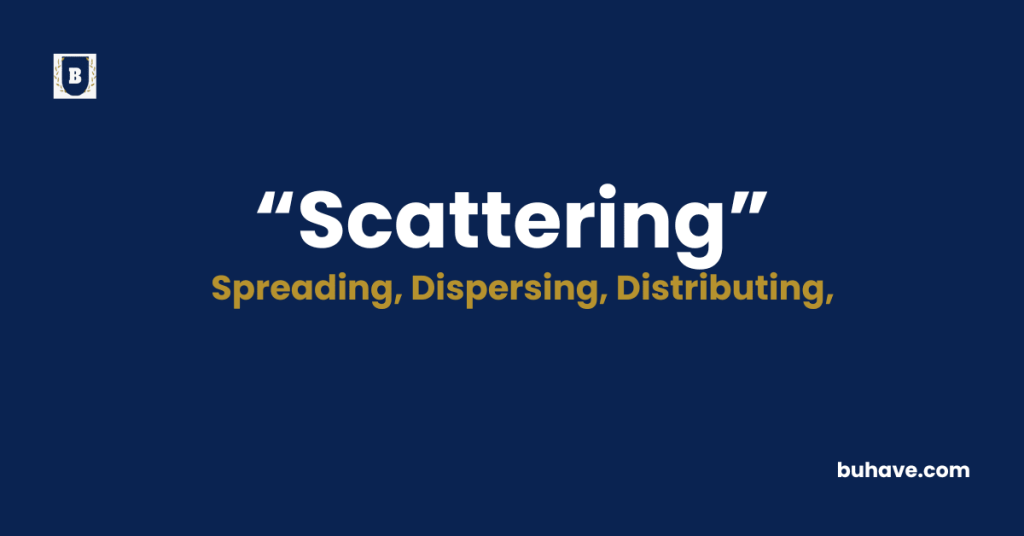The word ‘Scattering’ (Noun) refers to the act of spreading or dispersing things over a wide area. In this guide, you’ll explore its full meaning, definition, origin, real-life examples, synonyms, antonyms, and frequently asked questions to better understand and use ‘Scattering’ in everyday language.
Scattering Explained in Depth
A complete and detailed guide to the word ‘Scattering’ including meaning, definition, examples, etymology, synonyms, and antonyms.
Meanings of Scattering
‘Scattering’ means a small number of things spread out over an area, or the process of causing something to separate and disperse irregularly or randomly.
Definition
‘Scattering’ is defined as the act or process of dispersing or spreading objects, people, or particles across space or time in an irregular or disorganized way.
Etymology
The word “Scattering” comes from the Middle English word scateren, derived from Old Norse skatra, meaning “to disperse or throw about.” It has been used in English since the 13th century, mainly to describe spreading things widely or breaking up clusters.
Example Sentences
- A scattering of stars lit up the night sky.
- There was only a scattering of applause after the speech ended.
- The wind caused the leaves to go scattering across the yard.
Scattering Synonyms
- Dispersion
- Dispersal
- Sprinkling
- Spreading
- Distribution
- Strewing
- Breaking up
- Diffusion
- Shattering
- Broadcast
Scattering Antonyms
- Gathering
- Collection
- Cluster
- Concentration
- Accumulation
- Grouping
- Assembly
- Congregation
- Unification
- Compactness
FAQs about Scattering
Here are some frequently asked questions (FAQs) about the word “Scattering”
1. What does “scattering” actually mean?
“Scattering” means spreading or dispersing things in different directions or across an area, often in a light or irregular way.
2. Is “scattering” always physical?
No, scattering can be physical (like scattering seeds) or abstract (like scattering thoughts or ideas).
3. How is “scattering” used in science?
In physics, “scattering” describes the deflection of particles or waves, such as light scattering in the atmosphere.
4. Can “scattering” describe people?
Yes, it can refer to people moving in different directions—for example, “The crowd began scattering after the announcement.”
5. What’s the difference between “scattering” and “spreading”?
“Scattering” usually implies randomness and separation, while “spreading” may be more orderly or continuous.

















